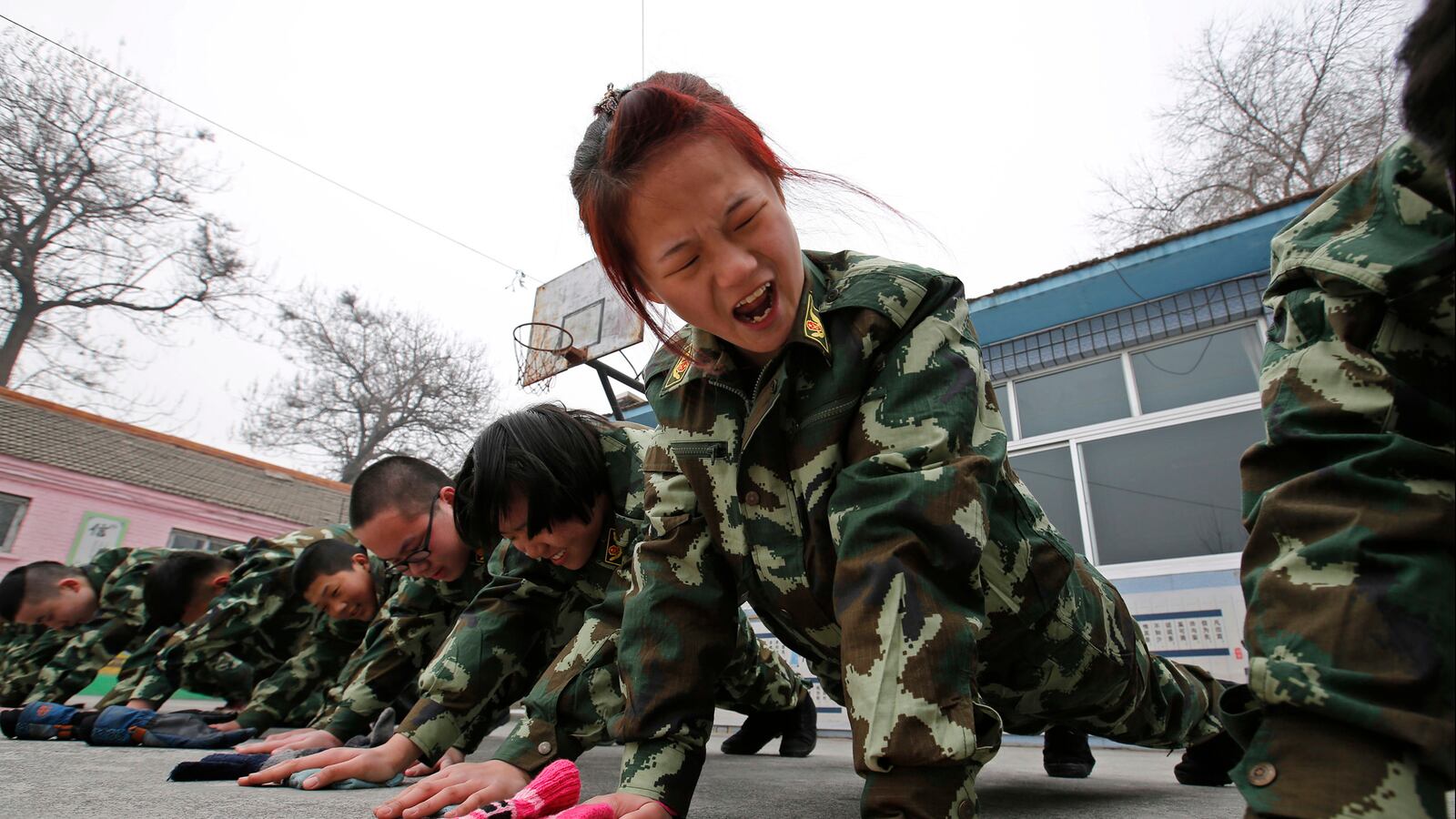Internet addiction is a global phenomenon. As the reach and functionality of the web becomes broader and more sophisticated, it both connects and isolates us. Human interaction becomes less and less necessary, and, for many people (particularly the young), the line between their real and digital lives has become dangerously blurred.
For us it was clear that China should be the focal point for a documentary on the subject of Internet addiction. China is the first country in the world to declare it a clinical disorder: anyone who is using the Internet over 6 hours a day, in ways unrelated to work or study, is considered an addict. So far over 400 treatment centers have been opened as a response to this epidemic, and each one is filled with patients, mostly teenage boys.
It is not easy to access the location of these centers, and on our initial trip to China, we were unable to find one. We went back to Israel empty-handed. We were particularly interested in finding the first center that was opened, on a military base in Daxing, outside of Beijing. Through an Israeli journalist working out of China, we were eventually able to connect with Professor Tao, who ran the Daxing treatment center.
Professor Tao agreed to open his doors for us to film at his center. He saw it as a way to explain why Internet addiction is a very important issue affecting the western world, but he didn’t quite realize what it meant to make a documentary. While he had been interviewed by both the Chinese and international media many times, there is a big difference between shorter interviews and the four-month long filmmaking process.
When we started shooting, we were initially assigned a specific nurse who shadowed us closely and who had to approve everything we wanted to shoot. It became clear very quickly that we were never going to be able to make the documentary we wanted without the freedom to shoot what we wanted as it happened. By the time we would get permission, the moment was over. We went to Professor Tao and asked for freer access, which was granted. We were happy to have gained his trust.
We didn’t have permission from the Chinese government to film there, a concern that was further exacerbated by being on a military compound. Westerners are not allowed on Chinese bases, and we therefore had to cover our heads and be driven around in cars with tinted windows to avoid detection when we entered the base. We were once caught by the military police. We were escorted off the base, and they threatened to take our passports (and who knows what else) if we returned. However, being the unrelenting documentary filmmakers we are, we went right back the next day and fortunately avoided further encounters with the authorities during our time there.
Physically and emotionally, it was very challenging. We spent our days and nights with the kids at the center, sleeping on bunk beds with thin mattresses. There were no showers, and we endured both the extreme heat and extreme cold of the Daxing climate. Many of the boys had been drugged or tricked into coming to the center, and to watch them adjust was very difficult. Many were despondent or even suicidal when they first arrived.
But probably the biggest challenge we faced was the cultural gap, which challenged our ability to communicate with the people we were working with. The concept of “saving face” is so profound within the Chinese culture, so convincing the parents to tell their stories and allow us to film their kids was not an easy task. When they finally agreed to be filmed, they confessed to being absolutely devastated; for them, the center was their absolute last resort.
As far as we know, the Chinese government didn’t know about the film until it premiered earlier this year at Sundance. We found out, however, that since the film’s premiere the Daxing camp has been closed down and Professor Tao relocated to another, non-military facility. We are proud that our film could be a catalyst for even a small change in the ways these boys are treated in China. In a broader sense, however, our film is about the darker side of the Internet and addresses issues that absolutely impact the West. We hope that our film can be also be a catalyst for change.






